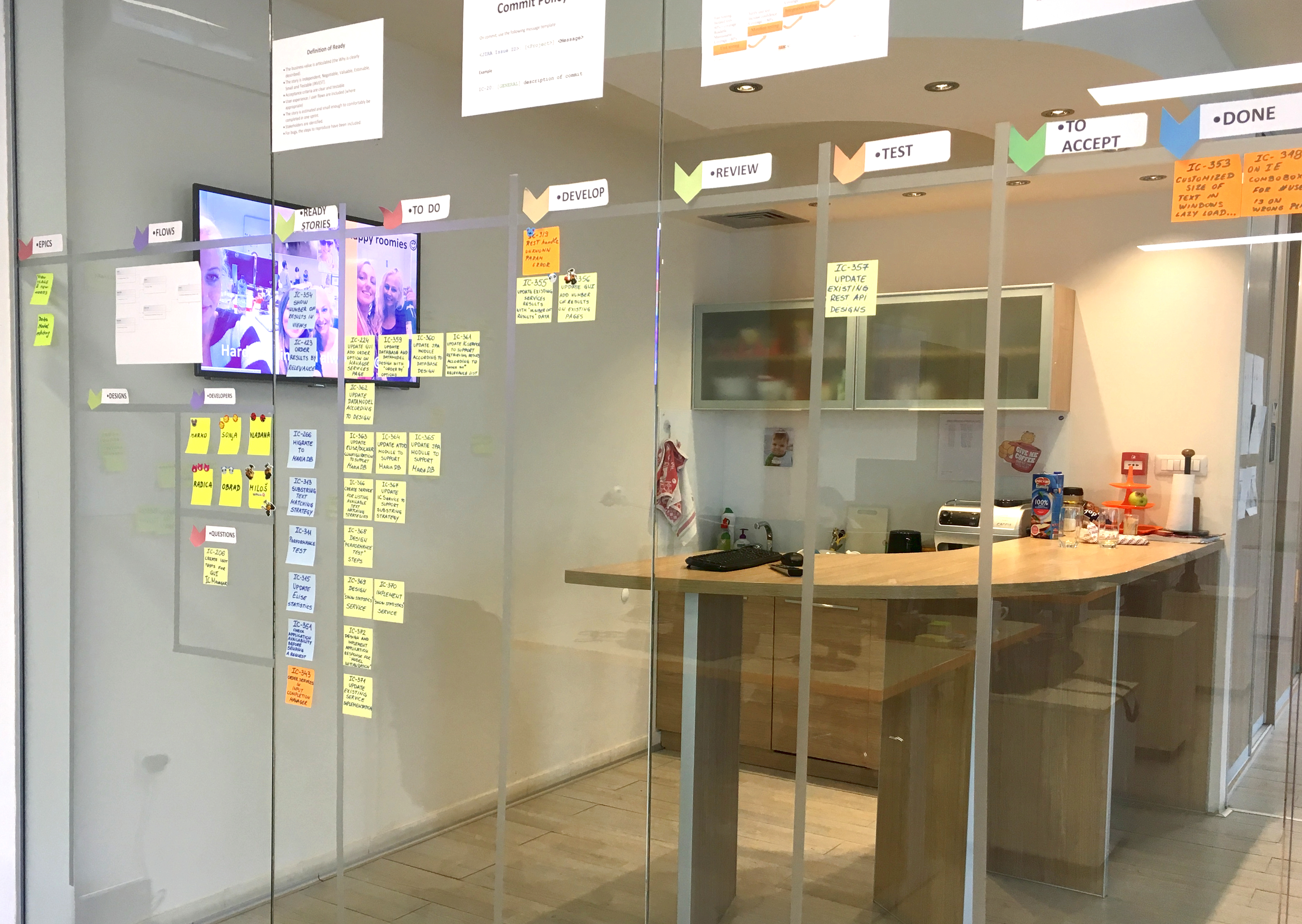This might come as a bit of a shock to you, but it really does! And who better to ask about the hows than our own Scrum Master Sonja. She sat down with me to tell me more about NIRI’s bold transition to the agile development process.
After my persistent efforts to pull Sonja away from her work for a few moments, I was finally able to ask her about Scrum. Its function and implementation piqued my interest, and I wanted to know more details about the way the system works.
I had the opportunity to observe team work here at NIRI, and I couldn’t help but notice that Scrum is essential to the way you all function. What are your impressions of Scrum and does it really work?
Sonja: Scrum definitely works. The great thing about it is that we receive feedback from the client very fast since our teams have to do reviews every two weeks. Typically, a review can be done every two, three, even four weeks depending on the project, but we can get the client’s answer fast, so any misunderstandings or mistakes can be changed quickly. This means there’s a small chance the team will be developing something for 6 months or a year, only to hear from the client that it’s not what they wanted or that it’s not relevant to them anymore. That’s the great thing about Scrum – the fast response. A constant review and monitoring of the progress can solve potential issues and prevent a lot of headache for us.
Did your team’s dynamic change after you started using Scrum?
Sonja: Oh, it’s definitely more dynamic now… this kind of work demands a certain tempo. The whole team had to relearn to work together. This is a very different process from the standard situation where you have one person who is the project manager, makes all of the decisions and has the last word in everything – that was the case before Scrum. Now, however, it’s all about the team collaborating for one common goal. Each member is equally responsible for the success or failure of the project, and we all had to learn to make compromises from time to time. It’s a challenge for big teams to work so effortlessly this way, so it takes some getting used to.
“One of Scrum’s strengths is the possibility of a fast response.”
Do you think Scrum has brought order to teamwork at NIRI?
Sonja: Yes, I think so. Basically, our work starts when all the tasks are clear and understood by the team and when each team member knows what their obligations are and what the final goal is. That doesn’t mean more questions won’t pop up during the implementation process, but we’re able to react to these changes right away. Sometimes there’s a bit of chaos among the team members and there are constructive and not-so-constructive [laughs] exchanges of opinions, disagreements, different ideas about the implementation process, solutions, and so on, but this is completely normal. So, instead of one person making all the decisions, each team member’s suggestion is equally appreciated. It’s very important for people to feel like their opinions are valued even if they don’t end up being accepted in the end.
Was it difficult to get used to this new system? How long did it take to learn how to use it?
Sonja: We are still getting used to it [laughs]. It’s been 2 and a half months now!
I see! When was it implemented?
Sonja: We officially started using Scrum on 8th August, but we had had some training a couple of months prior to that so we’re definitely still learning!
Interesting, because to me it seems like you’ve been using this for quite a while. You all look very organized.
Sonja: Yeah, well, that’s because Scrum is able to organize us quite well – we know what kind of meetings we will be having and what we’ll be discussing on them, so it’s all much more organized than before. As far as things like planning, scheduling or discussions are concerned, this is nothing new, we’ve always done this.
“Each team member’s ideas are equally appreciated.”
I was very impressed with how this whole system works, it definitely looks like it makes your job a lot easier.
Sonja: Scrum is the most contemporary methodology used today, and most software developing companies utilize it, so it definitely makes everyone’s job easier.
“Scrum is the most contemporary methodology used today.”
And finally, is there anything about this system that you would like to change?
Sonja: As far as Scrum is concerned, not really! I don’t believe the methodology of Scrum should be altered in any way, since doing so might give us some pseudo-Scrum framework which will not function well. Actually… ask me again in a couple of months [laughs]!

